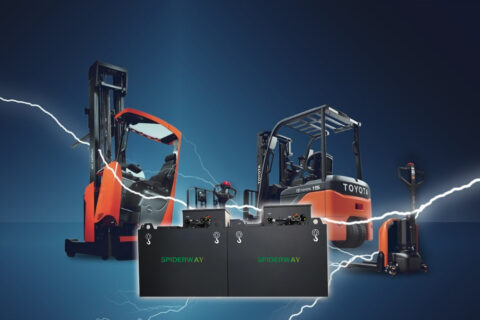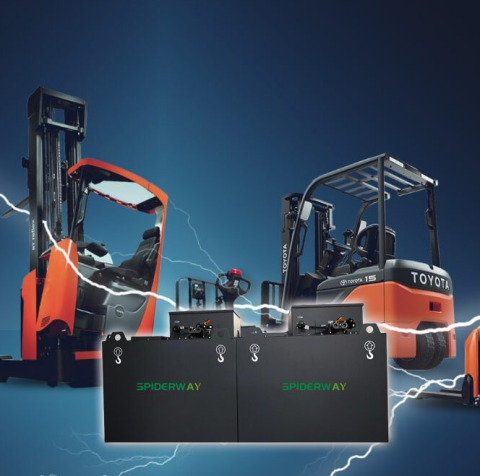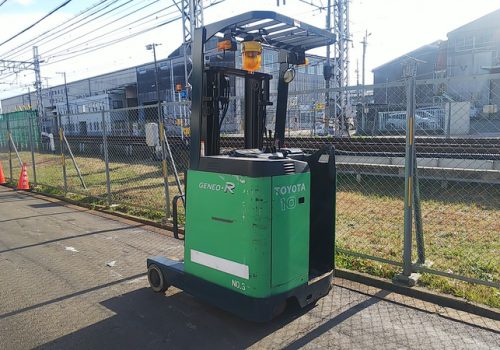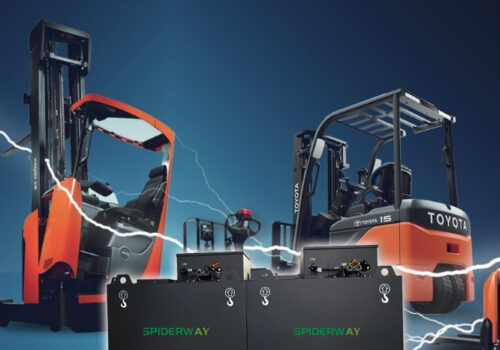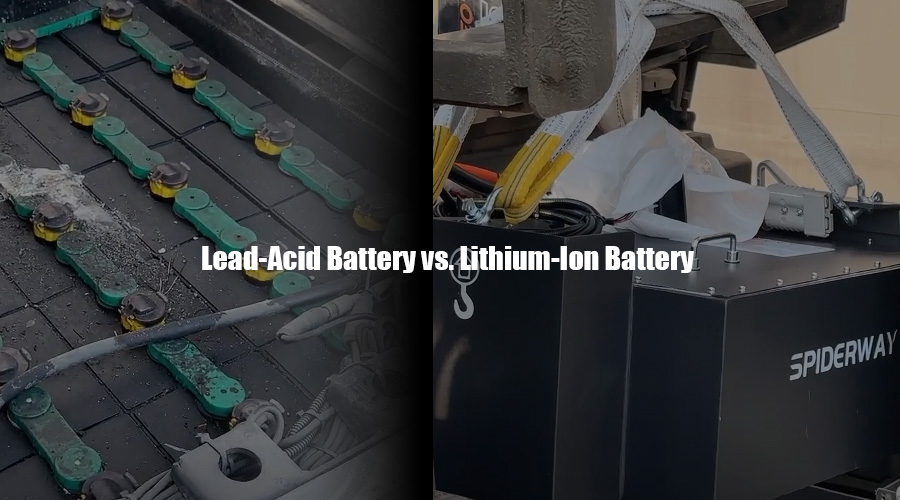
Forklifts are versatile machines that excel at moving heavy materials efficiently and swiftly within various industrial settings. The power behind these machines comes from their batteries, with lithium-ion and lead-acid being the most common types. Each offers unique advantages tailored to specific operational needs.
Lead-Acid Batteries:
These are also rechargeable and are favored for their cost-effectiveness and higher power-to-weight ratio. They are a staple in many industries due to their affordability and reliable performance. However, they demand regular maintenance, including cleaning and watering, which can add to the operational costs. Their heavier weight can be an advantage in applications requiring balance for heavy lifting.
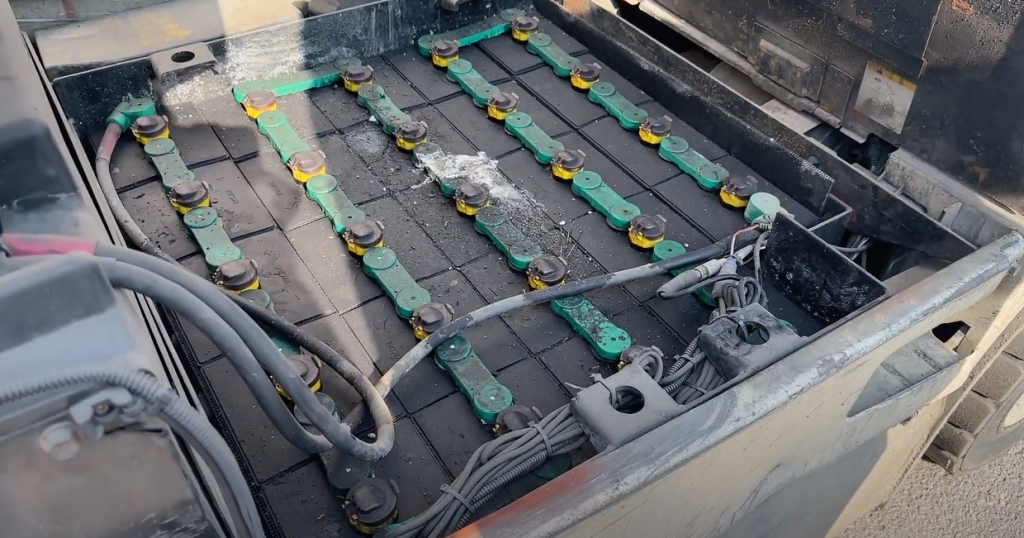
Lithium-ion Forklift Batteries:
These are rechargeable batteries composed of graphite and lithium, known for their minimal discharge rates and high energy density. Despite their higher initial cost compared to lead-acid, lithium-ion batteries are lighter, which might necessitate the addition of counterweights for stability when lifting heavy loads. Their lower maintenance requirements and rapid charging capabilities can offset the initial investment, making them an attractive option for businesses seeking long-term savings.
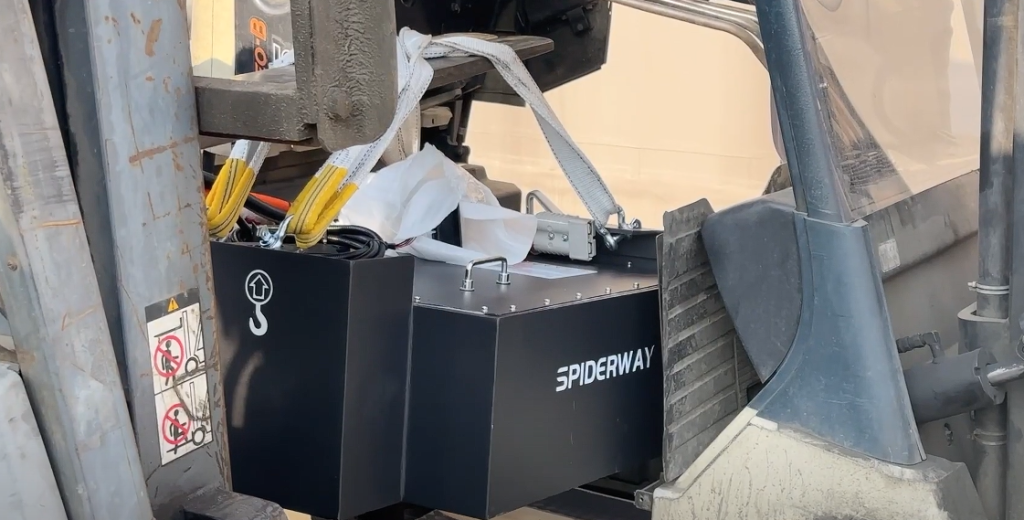
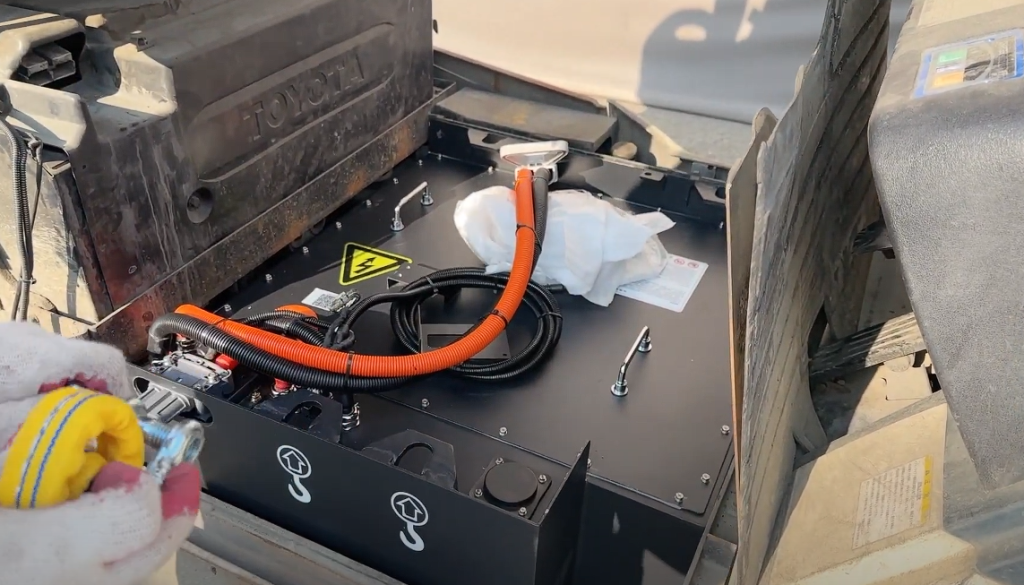
Advantages of Lithium-Ion Batteries:
- Reduced Maintenance: Less upkeep is needed compared to lead-acid, leading to cost savings.
- Quick Charging: These batteries can be charged more rapidly, allowing for charging during operational breaks.
- Longer Lifespan: They outlast lead-acid batteries, offering a better return on investment.
- High Performance: Consistent power and voltage ensure reliable forklift performance.
Advantages of Lead-Acid Batteries:
- Cost-Effective: They are more affordable initially, which can be beneficial for businesses with budget constraints.
- High Energy Density: They efficiently store energy in compact spaces.
- Durability: Built to withstand harsh working conditions, including shocks and extreme temperatures.
- Recyclability: Fully recyclable, contributing to sustainable business practices.
Choosing the Right Battery:
The decision between lithium-ion and lead-acid batteries should be based on your specific operational requirements. Lithium-ion is ideal for multi-shift operations with several forklifts, while lead-acid may suffice for occasional use.
- 48V 304AH LiFePO4 lithium battery for KOMATSU Forklift FB20-12 Type
- Product on sale48V 404Ah LiFePO4 lithium battery for LIUGONG forkliftOriginal price was: $5,399.00.$5,318.00Current price is: $5,318.00.
- Product on sale48V 606Ah LiFePO4 lithium battery for HELI forkliftOriginal price was: $7,999.00.$7,978.00Current price is: $7,978.00.
- Product on sale
 80V 404Ah LiFePO4 lithium battery for HELI K2 3.5T forkliftOriginal price was: $8,399.00.$8,310.00Current price is: $8,310.00.
80V 404Ah LiFePO4 lithium battery for HELI K2 3.5T forkliftOriginal price was: $8,399.00.$8,310.00Current price is: $8,310.00. - Product on sale
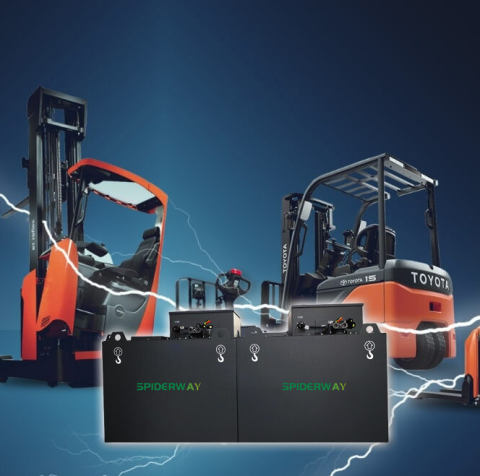 48V 404Ah LiFePO4 lithium battery for LIUGONG 2.5TforkliftOriginal price was: $5,399.00.$5,318.00Current price is: $5,318.00.
48V 404Ah LiFePO4 lithium battery for LIUGONG 2.5TforkliftOriginal price was: $5,399.00.$5,318.00Current price is: $5,318.00. - Product on sale
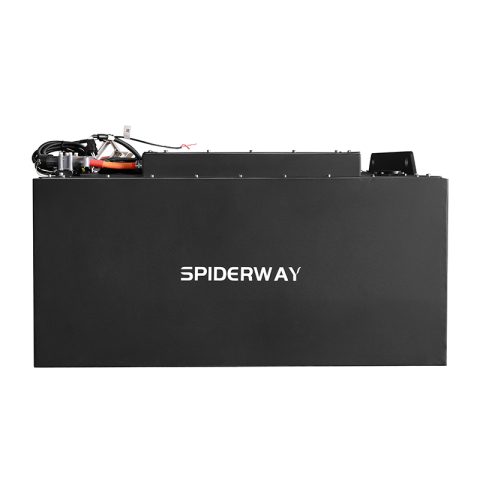 80V 544Ah LiFePO4 lithium battery for TOYOTA forkliftOriginal price was: $11,199.00.$11,190.00Current price is: $11,190.00.
80V 544Ah LiFePO4 lithium battery for TOYOTA forkliftOriginal price was: $11,199.00.$11,190.00Current price is: $11,190.00. - Product on sale
 48V 272Ah LiFePO4 lithium battery for LIUGONG forkliftOriginal price was: $3,599.00.$3,581.00Current price is: $3,581.00.
48V 272Ah LiFePO4 lithium battery for LIUGONG forkliftOriginal price was: $3,599.00.$3,581.00Current price is: $3,581.00. - Product on sale
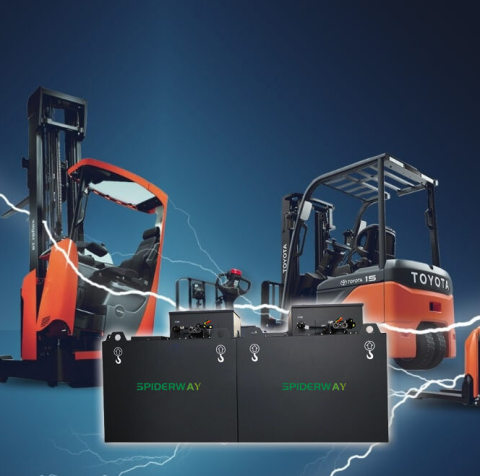 24V 202Ah LiFePO4 lithium battery for LINDE T20 forkliftOriginal price was: $1,399.00.$1,329.00Current price is: $1,329.00.
24V 202Ah LiFePO4 lithium battery for LINDE T20 forkliftOriginal price was: $1,399.00.$1,329.00Current price is: $1,329.00. - Product on sale
 48V 544Ah LiFePO4 lithium battery for HELI CPD20-F1 forkliftOriginal price was: $7,199.00.$7,162.00Current price is: $7,162.00.
48V 544Ah LiFePO4 lithium battery for HELI CPD20-F1 forkliftOriginal price was: $7,199.00.$7,162.00Current price is: $7,162.00.
Considerations:
- Service Life: Lithium-ion batteries last longer, reducing the need for frequent replacements.
- Maintenance and Labor: Lead-acid batteries require more maintenance and trained staff.
- Equipment Compatibility: Evaluate your forklift model and specifications to determine the most suitable battery type.
- Application Needs: Consider your forklift’s operation hours, travel distances, load weights, and lifting heights.
- Environmental Temperatures: Lead-acid batteries generate heat during charging, necessitating temperature-controlled charging areas.
Introducing SPIDERWAY LFP Lithium-ion Batteries:
For businesses looking to upgrade from lead-acid to lithium-ion batteries, SPIDERWAY LFP lithium-ion batteries offer a cutting-edge solution. These batteries are designed to meet the rigorous demands of modern forklift operations, providing superior performance, longevity, and efficiency. With SPIDERWAY, you can expect a seamless transition to a more sustainable and cost-effective power source for your forklift fleet.
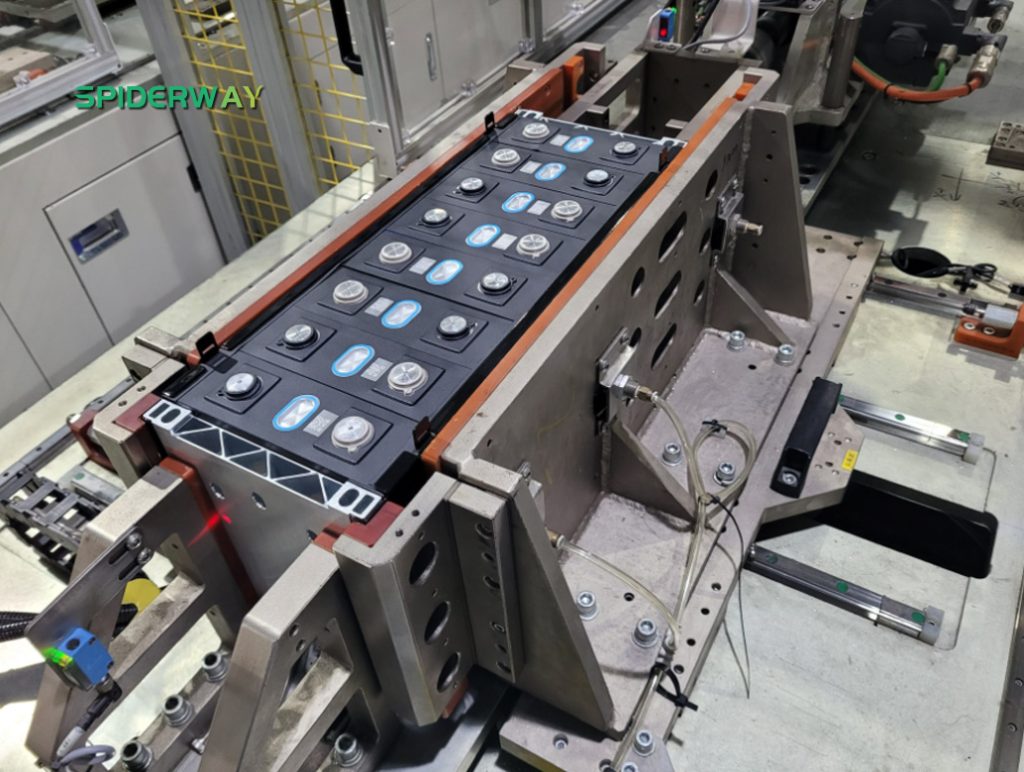

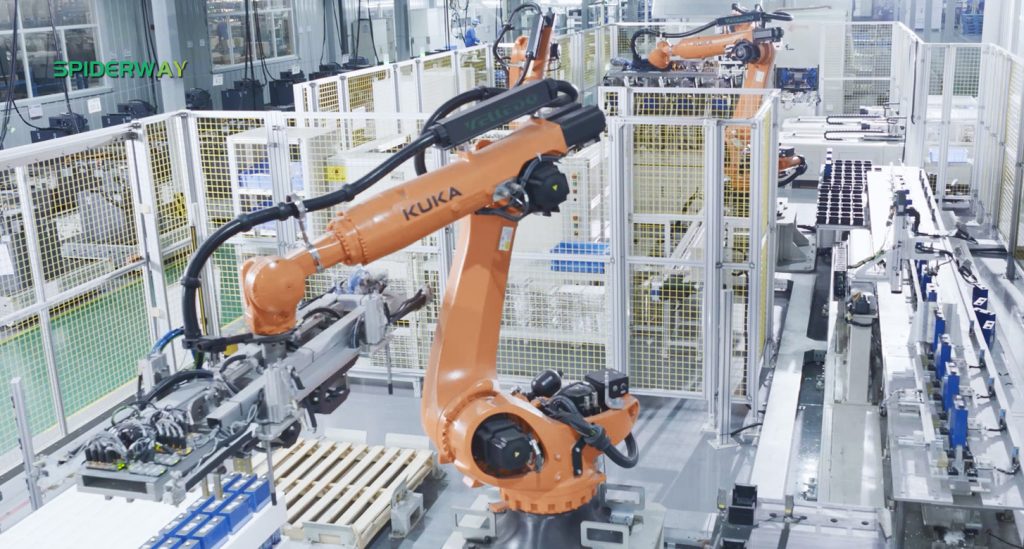

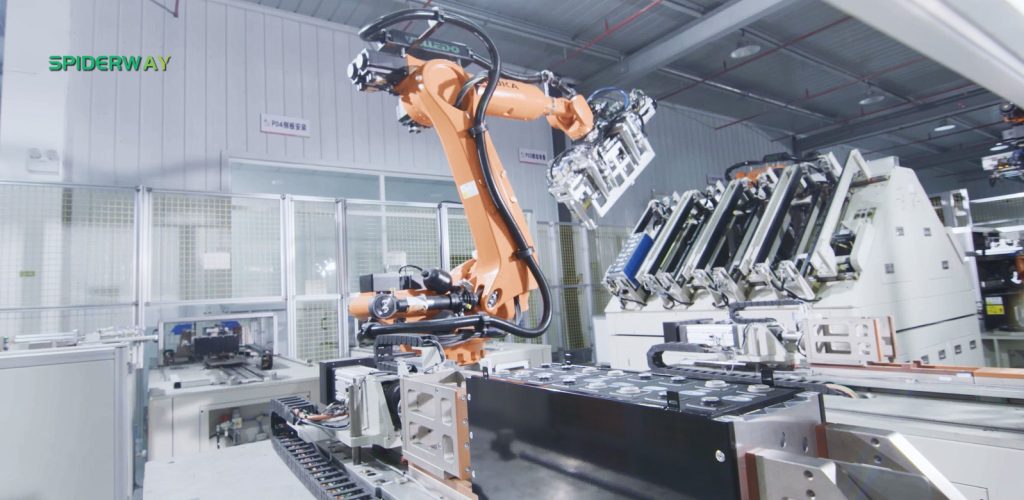

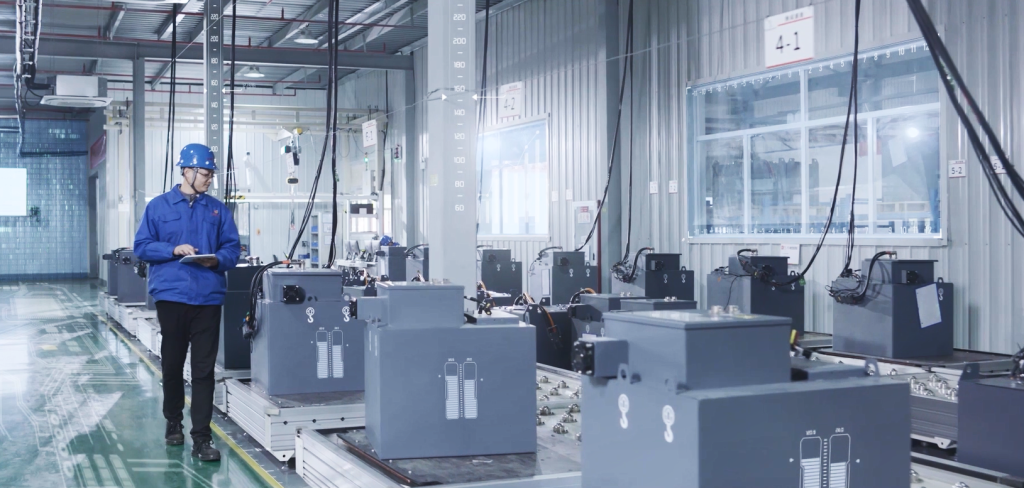

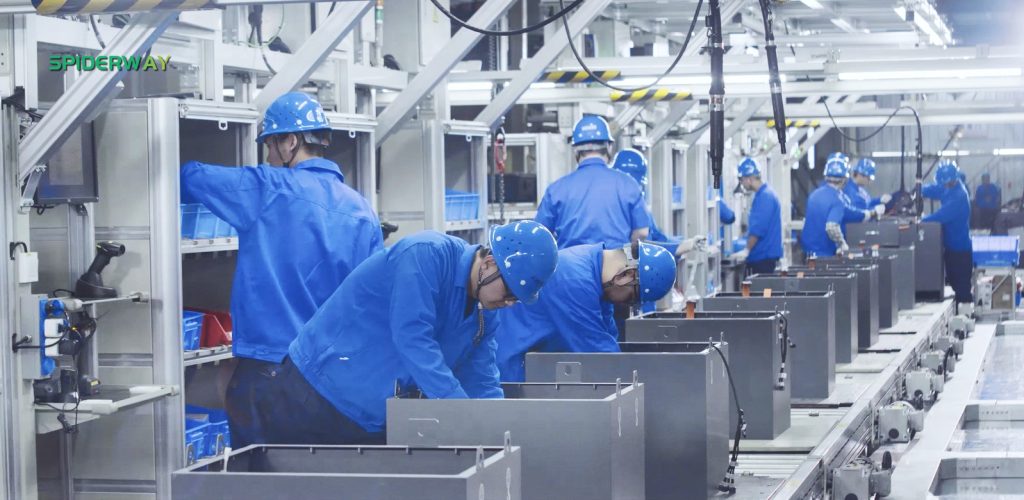

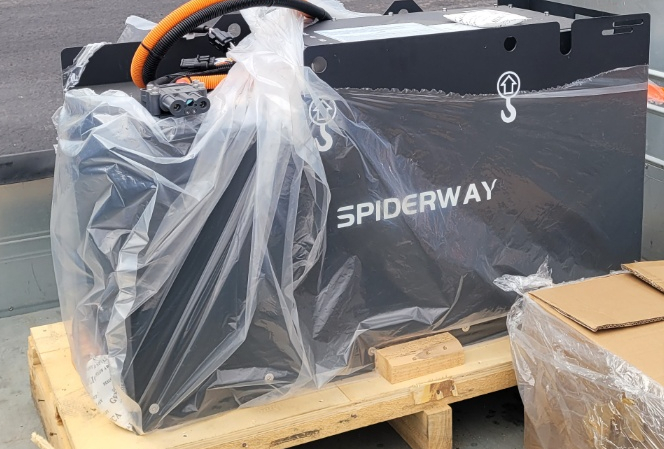

Content Keyword:
- Lead-Acid Battery vs. Lithium-Ion Battery
- Forklift Lead-Acid Battery Upgrade to Lithium-Ion
- Lithium-Ion Battery for Forklifts
- Spiderway LFP Lithium-Ion Batteries

